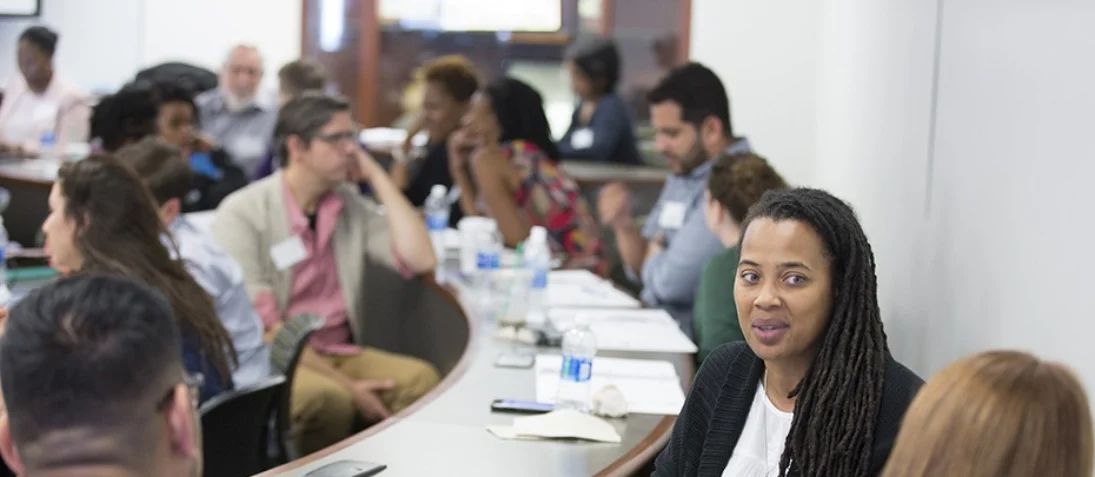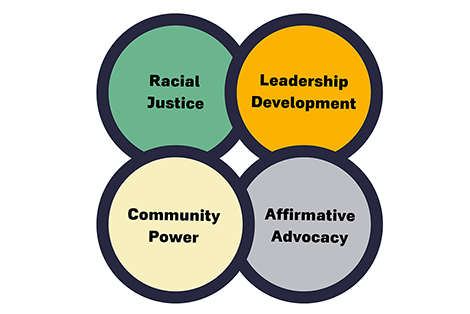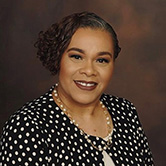
We build the capacity and skills of equal justice lawyers and activists to champion economic and racial justice in their fields.
Advocates for people with low income are change agents, community organizers, and trusted champions. Their work is broad, nuanced, and grand — and they cannot do it alone.
We believe that building the skills and capacity of advocates for low-income people will result in bigger, better, and bolder gains for people living in poverty.
The Shriver Center’s Advocate Resources and Training program equips advocates with the specialized training and leadership development they need. Rooted in the Shriver Center’s core values, our training programs are built on four principles essential to effective advocacy on behalf of low-income people and communities: Racial Justice, Community Power, Affirmative Advocacy, and Leadership Development.

The Shriver Center offers trainings in multiple formats—online, onsite, and through a mix of online and onsite sessions—your staff can learn when, where, and how you want. Many of our courses can be delivered remotely through our online campus. We can tailor trainings to meet your organization’s needs and schedule, and we can help you determine the best format for your organization. Download our overview of programs and offerings to learn more.
Partner with the Shriver Center for customized training and consulting! In addition to our public programs, the Shriver Center contracts with legal aid and civil rights organizations to offer customized training sessions and consulting and coaching on race equity, leadership, community lawyering, and more. We have contracted with nonprofits, legal aid providers, law schools, bar foundations and government agencies to train more than 1,000 advocates from over 100 organizations across the country. Contact us to learn more about how we can help build the skills and capacities of your staff.
Advancing race equity is an integral and essential part of anti-poverty advocacy.
Build a solid base for your commitment to racial justice advocacy.
Learn how to effectively work alongside the communities you serve to enhance their power.
Build a stronger and more effective organization through skillful supervision and management.
The system fears a well-rested advocate.



Aysa Gray, the Shriver Center’s racial and economic justice trainer, says that in times of political backlash, advocates need to understand the roots of structural racism and learn the tools to combat it. In a recent conversation, Aysa explains how the Shriver Center’s trainings meet the moment.
A trauma-informed and antiracist approach to legal advocacy includes four key elements.
Although the pathway to organizational change can be challenging, groundwork can lay a helpful footing.
How Washington State Advocates Navigated Early Days of COVID-19 to Uplift and Partner with Communities
In a listening session, Shriver Center Attorney Lorilei Williams provided comments to the Gender Policy Council and Special Assistant to the President
Understanding and using key constructs can help advocates better frame issues through a racial justice lens.
New alliance partners with Racial Justice Institute.